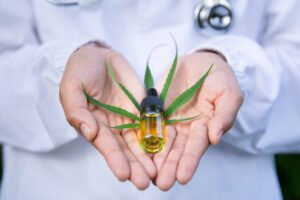The Science Is in: CBD Is Safe and Well-Tolerated
As hemp continues to become legalized around the world, more and more people want to know about cannabidiol (CBD). Is CBD safe? Does it have medicinal value?
While we all hold our breath about the possible medicinal benefits, the growing consensus is that yes, CBD is safe and well-tolerated. These are some of the reasons why so many people are already choosing it for their one lives.
So, are you curious about what all the hype is about too? Are these claims supported by science?
Robust Research Has Determined CBD is Safe and Well-Tolerated
In addition to the Canadian recommendation, U.S. studies have also determined that CBD is safe for human consumption. That was the conclusion the journal Cannabis and Cannabinoid Research came to, which reviewed an abundance of scientific literature on the topic.
The journal analyzed a variety of studies on CBD, most of them testing how effective it was in helping folks manage symptoms related to psychiatric issues and epilepsy. In many cases, people got positive results when using CBD to treat these conditions.
CBD also helped people with moderate to severe symptoms of depression, pain, and anxiety to get relief, per the Journal of Cannabis Research. It also fostered a greater sense of well-being in many study participants.
CBD Is Non-Intoxicating

While it’s well-known that smoking cannabis flower (among other ingestion methods) causes people to feel intoxicated or “high,” that’s due to the tetrahydrocannabinol (THC) found in the plant. CBD does not induce that feeling, as noted by the International Journal of Molecular Sciences.
Beyond the question “Is CBD safe?” many people also ask us, “What does CBD feel like?” Study participants shared that CBD causes them to experience feelings of peace and calm, according to the journal Neurotherapeutics. But this sensation is different from the psychoactive feeling caused by THC.
This, however, is not to say that CBD is better or worse for people than THC in general. Each person’s needs are unique, and their preferences depend on what conditions they may have, how they respond to each substance, and local regulations.
Side Effects from CBD Are Rare and Generally Mild
Some side effects of CBD have been reported, most notably fluctuations in weight and appetite, diarrhea, and sleepiness. Still, researchers are careful to note that these effects were milder and less bothersome than those that other medications used to treat the same conditions can cause.
That means people may be more likely to stick to their treatment plan given that CBD is less intrusive than its counterparts.
Some side effects may be more intense than those listed above, per the journal Current Neuropharmacology. However, it’s important to note that severe impacts usually occur when people ingest hundreds of milligrams of CBD a day. These intense doses are higher than how much is typically recommended.
Canadian Health Regulator Recommends CBD Should Be Available Without a Prescription
One very promising sign that CBD is safe and well-tolerated comes from a consensus of esteemed Canadian doctors. The reported to the number one health regulator in our neighbor to the north – Health Canada – in September of 2022.
These nine physicians spent three years analyzing CBD. They evaluated whether it should be available by prescription only or over-the-counter in stores. Their verdict was that doctors don’t need to be involved in the process for healthy adults (per the Canadian Government).
As for the specifics, the panel concluded that CBD is “safe and tolerable for short-term use (a maximum of 30 days) at doses from 20 milligrams per day to a maximum dose of 200 mg/day.”
That’s promising news for CBD advocates everywhere.
Is CBD Safe? Yes. But, What’s Next for CBD Research?
The science is clear on the fact that CBD is safe and well-tolerated by healthy adults. So much so that, in the majority of cases, a doctor’s supervision isn’t needed. This bodes well for the future of the compound, which has helped many people manage their symptoms.
Still, you’d be hard-pressed to read a study that doesn’t recommend more research on the topic. As with any relatively new compound, more study is needed to develop a comprehensive understanding of CBD and its potential applications.

